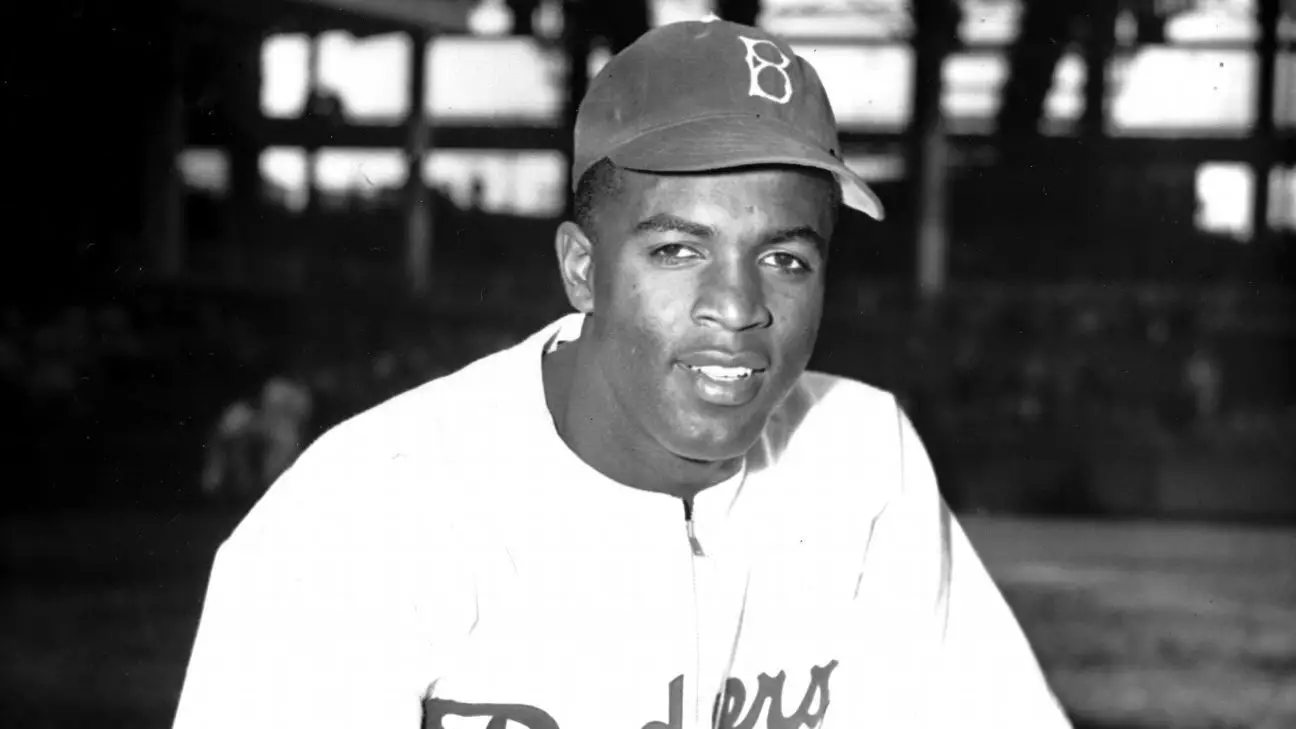The story of Jackie Robinson transcends the baseball diamond and delves deep into the complexities of race, service, and remembrance. Born in 1919, Robinson is not only celebrated as the first African American to break Major League Baseball’s color barrier but also remembered for his military service during World War II. However, the recent obscuration and re-emergence of his military narrative on the Department of Defense’s website expose an unsettling trend—the political machinations that seek to redefine or erase legacies based on contemporary ideologies or agendas.
In a recent incident where an article detailing Robinson’s military service was temporarily removed from the Pentagon’s website, many were left wondering what this meant for the broader conversation about Diversity, Equity, and Inclusion (DEI) in the military. The removal, which coincided with a directive from the Department of Defense aimed at purging content that promotes DEI, highlights a troubling tendency to oversimplify the contributions of historical figures by dissecting their significance through a narrowly defined lens of race and identity.
Military Service: A Reflection of Core Values
Robinson’s service as a second lieutenant in the U.S. Army illustrates his commitment to the nation at a time when America itself was struggling with its values related to race and equality. Serving in the segregated 761st Tank Battalion—Gracefully dubbed the “Black Panthers”—Robinson displayed not only bravery but also a deep sense of dignity amidst adversity. His court-martial in 1944 for refusing to comply with an order that was inherently racially discriminatory proves that his fight against injustice began long before his breakthrough in baseball.
The Pentagon’s reluctance to acknowledge his military contributions, as showcased by the initial removal of the article, raises questions about how history should be remembered. It also touches on broader themes: how do we honor those who sacrificed their lives for a nation that often failed to recognize their humanity? By attempting to strip away the context of Robinson’s race and identity, the Defense Department risks overlooking the very essence of his narrative—a tale steeped in resilience, struggle, and ultimately, triumph.
Public Sentiment in the Age of Historical Revisionism
The rapid restoration of the article, following public outcry and scrutiny, reflects the ambivalence many Americans feel regarding – and often against – historical revisionism. It serves as a reminder of the ongoing cultural battles that pit the intentions of a traditionalist viewpoint against a society striving for social equity. Pentagon press secretary John Ullyot’s statements reveal a deep-seated ideology that values warriors for their unwavering patriotism while disregarding the complex intersections of race and identity.
While he asserts the Department’s appreciation for figures like Robinson, it begs the question: Is it possible to honor someone like Robinson without acknowledging the racial struggles tied to their legacy? For Ullyot and others advocating for a ‘color-blind’ recognition, the answer seems to be an uneasy yes. Yet this erasure does more harm than good; it trivializes the very essence of what Robinson stood for.
Continuing the Conversation: Remembering the Impact
Robinson’s narrative should not simply persist as a historical anecdote for a sports league but rather be a catalyst for challenging the status quo. April 15 is duly recognized as Jackie Robinson Day across Major League Baseball, a day where every player dons his iconic No. 42. This act goes beyond mere acknowledgment; it serves as a pivotal moment to reflect on the ongoing fight against racial inequality within and beyond sports.
The forthcoming statues of Robinson, Muhammad Ali, and Kobe Bryant planned for the National Garden of American Heroes may embody a collective aspiration to honor figures who broke barriers, but they must also serve as reminders of the work that remains to be done. As society continues to grapple with its own historical narratives, Jackie Robinson stands as a symbol that challenges us to actively engage in conversations about race, identity, and the true meaning of heroism in America.
In the grand tapestry of America’s history, Jackie Robinson’s threads are colorful and rich, filled with stories of adversity that speak not only of his achievements but also of a nation in flux. His legacy remains a vital part of ongoing dialogues about race and representation, urging us to remember that the struggle for recognition and justice is far from over.


Leave a Reply